The goings-on in Oregon reminded me of the 1998 debacle in Bluff, Utah, which in turn reminded me of Dad Schultz’s Dead Run and Tony Hillerman’s Hunting Badger, which I decided to reread.
The root of the problem in Oregon is that the government owns vast stretches of land, 44% of the total West. It belongs to the United States government because of the rights of conquest or of treaties with Native Americans. If the land was obtained unfairly it belongs to the Native Americans, not Anglos who came in much later. My father-in-law in deciding cases in his court cited the maxim that thief one has priority of ownership over thief two. That is, even if the Federal government stole the land from the Indians, the ranchers cannot steal it from the government.
The National Parks are off limits to development, but the land under the Bureau of Land Management (BLM) can be leased for other uses, logging or ranching or mining (Motto: The Land of Many Uses). Much land is also in the Forest Service.
Many ranchers have overgrazed the West, converting grasslands into sagebrush desert. As the West in in a long-term drought, the damage is made worse each year. My sources in Boulder, Utah, have told me that the Federal government leases grazing rights at a small fraction of the cost of private land. In other word, ranchers using federal land are getting enormous subsidies from the federal government. When conservationists bought up the grazing rights to try to stop overuse of the land, the ranchers, having sold the rights, sued to get them back because the conservationists were not using the land for grazing!
So I have little sympathy with those who claim that “the land should be returned to them.” If the federal government is not the lawful owner, the Native Americans are, not the Johnny-come-latelies who showed up in the wake of the cavalry.
Furthermore, the refusal to pay already discounted fees is outrageous. Cliven Bundy caused a standoff in 2014. He had refused to pay his fees for 10 years, and owed the government a million dollars. His armed friends forced the court to back down in its attempts to collect the debt.
In 1994 Dwight Hammond and his son Steven signed a lease for federally-owned range land. The land needed to be cleared, but the Hammonds thought that the government was taking too long to do controlled burns, so they set brush fires on leased federal land and claimed dry lightning had started them. They claimed the fires they set were on their own land and spread to public land. They were convicted and sentenced, Dwight to three months and his son to a year and a day. But the minimum sentence for arson of federal property is five years, so I higher court voided the lower sentences and ordered the Hammonds to serve the longer ones. They agreed to turn themselves in, while asking for clemency.
The five year sentence seems excessive in this case; minimum sentences often create injustices, but forest fires can easily get out of hand and endanger lives, so the Hammonds should serve some time.
But then Ammon Bundy, the son of Cliven, and his armed friends decided to take advantage of the controversy, and occupied an administrative building at a wildlife refuge.
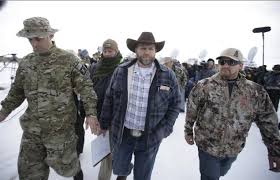 The government plans to cut the power off Monday. Everyone (I hope) wants to avoid another Waco, and it gets cold in January and February, so they can sit and freeze as long as they want. They brought snacks with them.
The government plans to cut the power off Monday. Everyone (I hope) wants to avoid another Waco, and it gets cold in January and February, so they can sit and freeze as long as they want. They brought snacks with them.
As Gershwin, a rancher who had belonged to a militia, says in Hunting Badger:
Bastards in the Forest Survive were acting like they personally owned the mountain…We lived there all our lives, but now we couldn’t graze. Couldn’t cut wood. Couldn’t hunt elk. And the Land Management bureaucrats were worse. We were the serfs and they were the lords. We just wanted to have some sort of voice with Congress. Get someone to remind the bureaucrats who was paying their salaries. Then the crazies moved in. EarthFirst bunch wanted to blow up the bridges the loggers were using. That sort of thing. They we got some New Age types, and survivalists and Stop World Government people.
So Navajo policeman Jim Chee and retired Lieutenant Joe Leaphorn try to figure out which of many suspect groups robbed the Ute Casino of a half-million dollars and killed a cop. They have bad memories of what happened in reality in 1998.
Three radicalized friends, Mason, Pilon, and McVean hated the government and planned something big.
Robert Mason
Jason McVean and Alan Pilon
In 1998 the three friends stole a water truck and robbed the Ute Casino, killing a policeman during the get-away. They had made plans, but what was their plan for the water truck? To fill it with explosives and blow up the Glen Canyon Dam? (It would take a nuclear bomb to crack the dam.) McVean had read The Monkey Wrench Gang seventeen times.
In any case their plans went aglay. Hundreds of law enforcement people descended on Bluff, Utah, and evacuated the civilians.
Recapture Lodge
As Jim Hook, the owner of Recapture Lodge (where I have stayed many times) described it:
The air is full of helicopters and spotlights, all the bridges and entrances to town are blocked and guarded. The SWAT teams have set up skirmish lines along the river next to the lodge and on top of the cliffs. (Dead Run)
They got in other’s way and totally obliterated the tracks that the Navajos could have followed. As Jim Chee remembered it
In the spring of 1998 he’d been involved in an exhausting, frustrating FBI-directed manhunt for two cop killers. At its chaotic worst, officers from more than twenty federal, state, county and reservation agencies had floundered around for weeks in that one with no arrest made before the federals decided to call it off by declaring the suspects “probably dead.” (Hunting Badger)
The FBI had offered a reward of $150,000, and then was surprised that bounty hunters descended en masse, further messing things up.
Mason had committed suicide early on, but the other two, Pilon and McVean, vanished. What happened to them? In October 1999 Navajo hunters found Pilon’s skeletal remains and a knapsack full of ammunition and pipe bombs. They got the reward. The skull had been blown apart, and reconstruction showed he had been shot at a downward. It wasn’t suicide. That left McVean.
A cowboy found McVean’s remains in June 1006. Where had he been between 1998 and 2006?
There are many anti-government types in the West.
For Westerners, particularly those living in the rural interior, antipathy toward the government reflects the fed’s historic control of the region, compounded by a bite-the-hand-that feeds you resentment of their dependence on Uncle Sam. (Dead Run)
(In addition to the paltry fees for the use of federal land, most of the West would remain a desert if it weren’t for the astronomical subsidies of water, the subject of Cadillac Desert).
How long had McVean survived? Had he had help from sympathizers? Another of the many mysteries that surround the case.
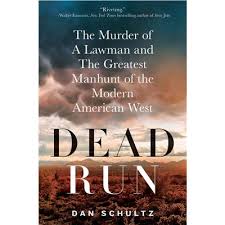
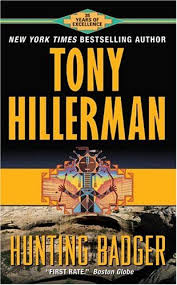
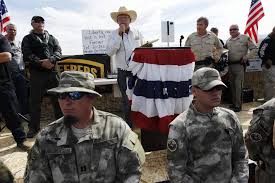
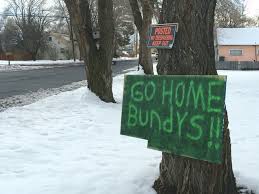

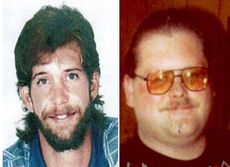
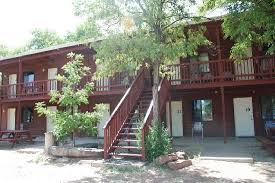
Interesting. Linked to my blog.